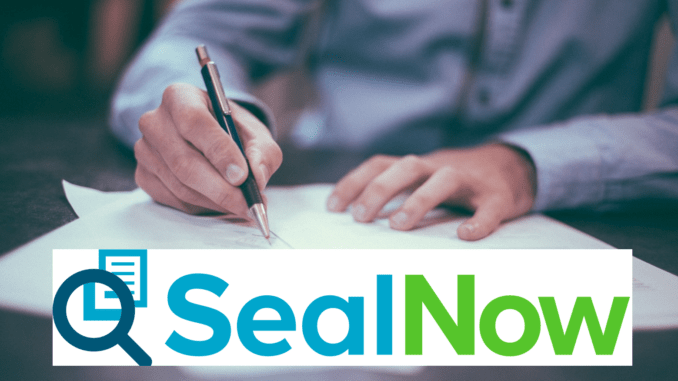
In a radical strategic move, legal AI pioneer Seal Software has launched a contract review and negotiation system aimed at helping legal functions handle pre-signature third party paper – in what is a major development for the company’s ambitions.
ALSP UnitedLex, which signed a partnership agreement with Seal earlier this year, is an early adopter of the system called ‘Seal Now’.
To put this move in perspective, since its launch in 2010, Seal – which is really the original legal AI company – has had a focus on analysing large document stacks of already executed contracts, from procurement deals, to M&A due diligence projects, to a growing array of matters across Brexit, LIBOR and more. Its immediate competitors are companies such as Kira Systems, eBrevia and other large-scale doc analysis systems.
Now, after nine years the company has decided to throw its considerable NLP tech capabilities at the other side of the contract line – the pre-signature, negotiation and review phase.
The goal, as seen with other companies in this space, such as ThoughtRiver, which will now be a competitor, is to spot risk and help inhouse lawyers in particular to quickly review and amend contracts that land on their desks, using AI technology. This provides an efficiency, risk reduction, and economic gain for the corporate client.
Seal’s system will provide a simple scorecard delivered directly in Microsoft Word, leveraging a user-friendly ‘traffic light’ interface.
Seal Now also delivers the same scorecards via email in a format that can be easily shared internally to create ‘a greater degree of transparency into the negotiation process, to help set expectations around negotiation timelines, and to highlight the risks and opportunities contained in the most recent draft agreement’, says the company.
Interestingly, Artificial Lawyer recently showcased a new legal AI company providing some similar attributes, called BlackBoiler, which also has a focus on pre-signature contract review using a mix of Word and email, and with an NLP backend.
Seal Now provides:
- AI insights powered by Seal’s enterprise-class contract analytics;
- a logic engine to confirm compliance with a client’s playbook;
- a clause library to allow preferred or approved language to be substituted for drafting purposes; and scorecards and dashboards to surface key information and guide the negotiator to critical areas of the draft contract.
So, there you go. Impressive in several ways.
First, Seal is now going to market with a two-pronged strategy, i.e. both pre- and post-signature. It’s going into battle with a growing number of legal AI companies that are now working in this pre-sign area. And, it’s bringing to the party what is arguably one of the best developed NLP capabilities in the legal sector.
Plus, worth noting that Seal now says its ‘enterprise contract analytics platform is used by more than 100 Global 2000 enterprises’. So, if they get buy-in from those clients for Seal Now as well, then this will have quite an impact.
Artificial Lawyer asked Jim Wagner, President at Seal, some more:
Why do this? And why now? Why the move into the pre-sign area?
Our enterprise customers who use Seal to analyze their contract portfolios have asked us repeatedly to make the same AI insights available during the negotiation phase.
There are two reasons: 1) they think Seal will make their negotiation process better and more efficient, and 2) they would prefer to fix the problems in their contracts before they sign them.
How large is the potential market for such an application?
The market is massive – probably bigger than the market for traditional CLM. Here are two ways to look at this. First, we think in the next 3-5 years AI will be as essential on the desktop of contract negotiators as spellcheck and redlining.
Second, global legal spend for 2020 is estimated at more than 1 trillion USD. If you assume that only 10% of that goes to contract negotiation then there is still 100 billion of spend that we know we can significantly impact. That’s a pretty big market.
How much training will be needed for each client to make this accurate?
For our existing clients, they will be able to deploy Seal Now for their existing models without additional training. Seal Now is just an extension of the platform and their investment in AI to date. To the extent that a client has a new issue that they wish to address, then the client will be able to select the model from our marketplace of pre-built models or they or we can build custom models.
The timing and amount of work for building new models is dependent on the complexity of subject matter and can range from the identification of a handful of representative clauses to (on the high end of complexity) the training of 20 or more clause examples.
—
Meanwhile, and in addition, Dan Reed, Founder and CEO, UnitedLex, said in a statement: ‘Every legal department wants to reduce deal negotiation times, improve quality of the contract negotiation, and, of course, identify any issues as early as possible in the drafting phase. This is especially important when dealing with third-party contracts. We have been working with Seal on the development of Seal Now and believe it addresses these pain points admirably.’
Exciting times, as ever, in the world of legal AI…!
1 Trackback / Pingback
Comments are closed.